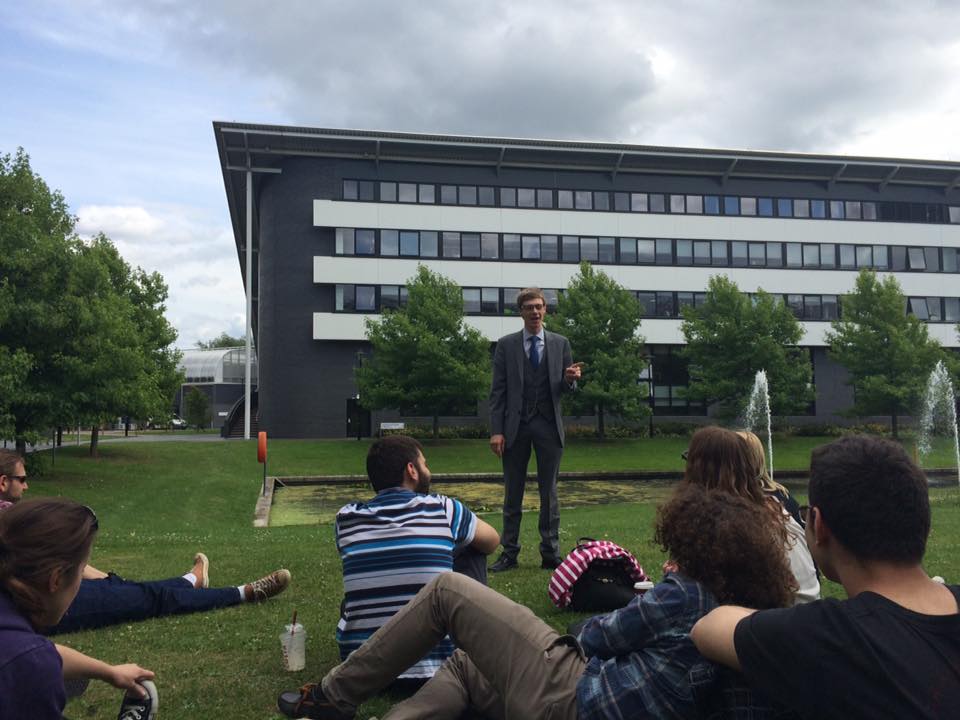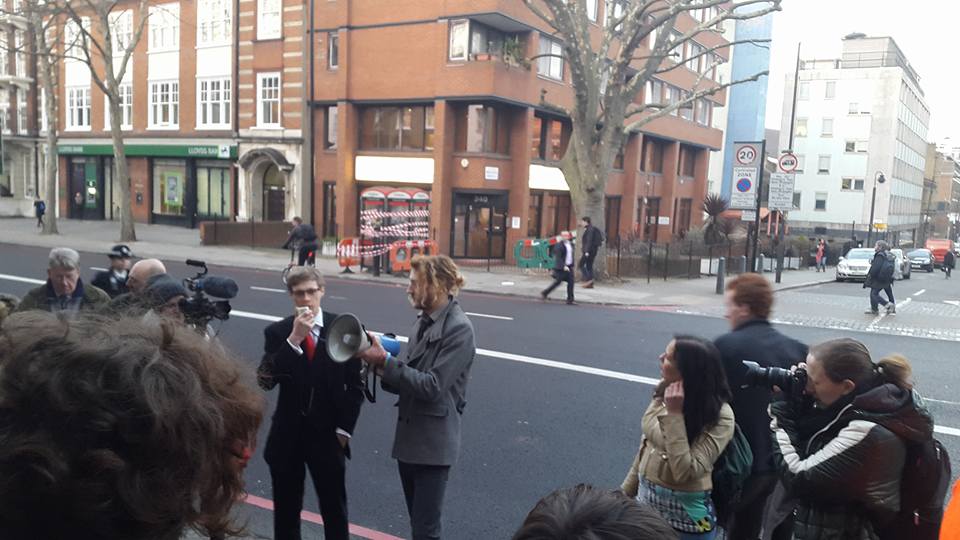“Humanist societies make vital contributions to society through our university campuses by shining the light of skeptical inquiry on issues of importance, most notably free speech.”
Ever since the 1980s, the world has celebrated World Humanist Day on 21 June. Originating from the American Humanist Association (AHA), the day provides an opportunity for humanists to spread awareness about the concept of humanism, a philosophical ideology that favours critical thinking and science over superstition and the supernatural.
Richard Acton, 23, has been President of the National Federation of Atheist, Humanist and Secular Student Societies (AHS) in the United Kingdom for the past one year. To celebrate World Humanist Day, he wrote for the IPF about why AHS exists and why he thinks every university needs a humanist society.
There are now a lot of people with no religion: 48.5% of people in England and Wales have no particular religious affiliation, something which tends to be found more commonly among the younger generations. Those who have no religion but do not self-identify as humanists often share the same values with self-identifying humanists, and are concerned about the same issues.
AHS exists to support humanist student groups at universities across the UK and Republic of Ireland. We provide them with training and resources, as well as help them to coordinate with like-minded local and international groups. But what do AHS societies really do?
Our societies are a voice for a growing demographic and serve as a place where people come together to tackle issues that matter to them. We also provide communities for people who have lost their faith. For some this is relatively uneventful but for others it can be very difficult.
Loss of religion can mean alienation from family and friends, leaving people cut off from emotional and financial support.
Humanism encourages critical thinking
Personally, I think the most important aspect of our work is our concern for science, skepticism and critical thinking. Why? Because you can’t fix a problem without an accurate picture of what it is. And you won’t have an accurate picture of the problem unless you approach it with skepticism. Otherwise you risk spending time and resources in attempts to fix a problem based on faulty beliefs about it.
Think about poverty, hunger, disease, inequality, the inadequacies of the media, the failure of political systems, etc. Now ask yourself: In how many of these areas are well-intentioned people working hard for progress, but will ultimately have little effect due to beliefs about the nature of the problems they seek to address?It is easy to run with a plausible sounding explanation, rather than to be skeptical. It’s human nature.
However, scientists are a community of people who spend their careers trying to answer crucial questions about the world. They have learned to value openness, questioning and criticism of ideas. They have sown the seeds of a culture that values understanding and how best to improve it, so that this understanding can be used to effect change for the better.
You don’t have to be a scientist to appreciate scientific culture. I think the most important role of AHS societies is to function as groups that values and spreads scientific culture. Together, we learn not to flinch away from criticism and the possibility of being wrong.
It is the role of AHS societies to challenge faulty assumptions, and to engage with difficult and challenging topics, particularly those that arise at university and will have immediate relevance to students.
Engaging with issues that impact students on campus
It is also their role to do so with good grace and humility, offering honest and persistent curiosity about the reasons people have for holding the positions that they do. Our member societies engage with a variety of different issues, including transparency of Student Union grants, provision of non-religious pastoral support, charitable fundraising and community volunteering.
An important issue for us in recent years has been free speech on university campuses. Universities and Students Unions have been placing restrictions on speakers invited to campuses by student societies. This is a result of poor policy, misunderstandings and miscommunication. It is important for AHS to support members who have found themselves at odds with their universities and Students Unions over these issues.
Humanist societies make vital contributions to society through our university campuses by shining the light of skeptical inquiry on issues of importance, most notably free speech. They provide support to people in need of communities. They draw attention to and foster debate on important, and often controversial, subjects. By stirring debate and challenging ideas, AHS societies drive progress in the discourse taking place on university campuses.



